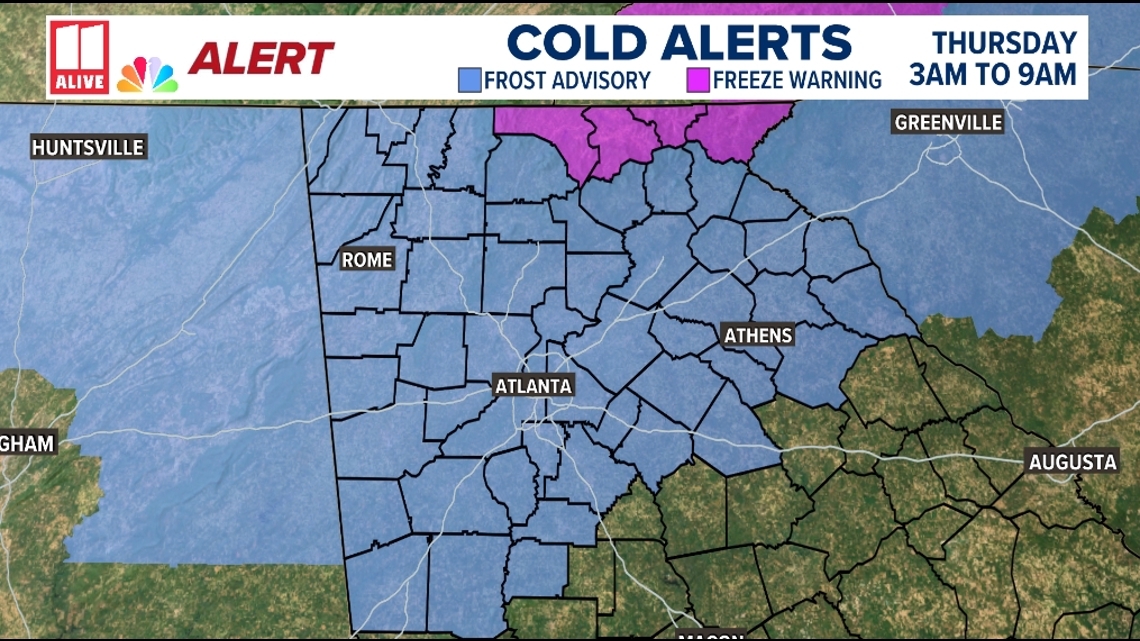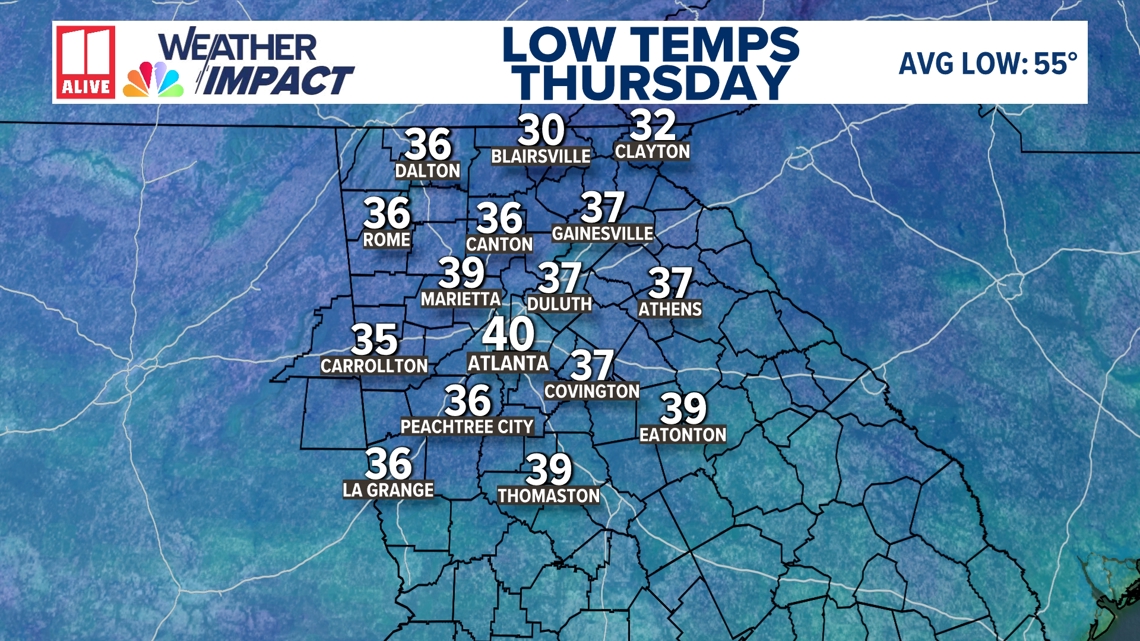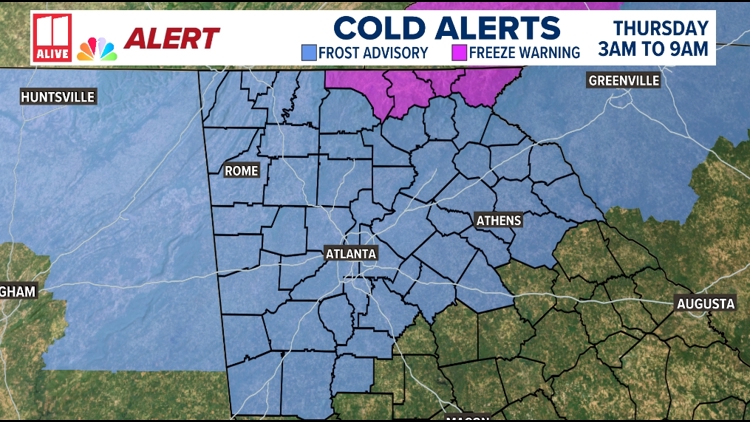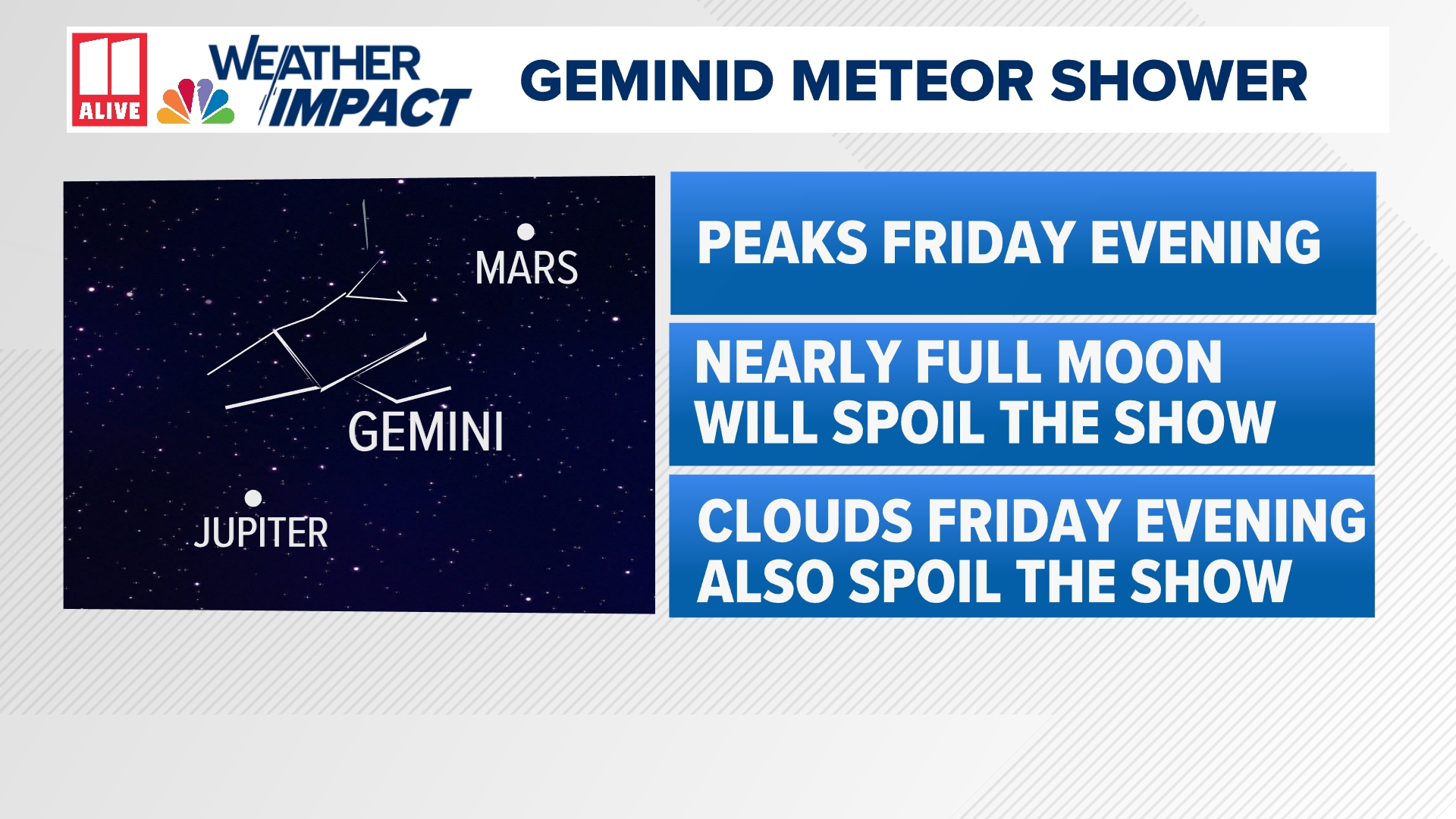ATLANTA — The coldest air of the season is here, and it will set the stage for a frosty start Thursday morning. 11Alive has issued Weather Impact Alerts for Thursday and Friday mornings for the early-season cold.
A Freeze Warning will be in effect from 2 a.m. to 10 a.m. for Fannin, Union, Towns, and Rabun counties. In these locations, temperatures could drop to the low 30s for several hours. The sub-freezing temperatures could damage or kill sensitive plants or vegetation.
A Frost Advisory (in light blue) will be in effect from 3 a.m. to 9 a.m. for the rest of north Georgia and metro Atlanta. Central Georgia is not in the advisory, where temperatures may stay just warm enough not to have frost develop. Although inside the city of Atlanta, we may not get down to the 36-degree threshold, colder pockets will exist around Atlanta. All of the suburbs will get down to the mid-30s Thursday morning.


Thursday Morning Forecast Lows
The coldest temperatures Thursday morning will be in northeast Georgia, where temperatures will be around the freezing mark. In the metro area, suburbs will drop to the mid-30s. Our low will be closer to 40 degrees inside the city center.
This cold may be slightly ahead of 'normal,' but it is not near records for the earliest-ever temperatures this cold.
For Atlanta, the average first 'fall' morning is in the 30s around the end of the month, October 29. This is based on 1991-2020 climatology data. We average our first morning at or below 36 degrees on November 3rd.
The mountains where freeze warnings are, in effect, average their first fall freeze between October 11 and 18, which is right on schedule with this current cold snap.


How Does Frost Form?
Frost forms with clear skies, light winds, and temperatures at or below 36 degrees. Air temperatures are measured about 6 feet above the ground. As cold air sinks, temperatures right at ground level are around freezing. Water molecules in the air can freeze when they come in contact with frozen surfaces, forming frost. That frost can cover the grass, plants, cars, and even the roofs of houses.
Should I Protect my Plants and Pipes?
If you still have a garden going or potted plants or herbs and you want them to last a little longer this fall, you can protect them pretty quickly. Bring potted plants inside a garage or your house/apartment. For larger pots or in-ground gardens, you can protect them by placing a sheet over them right before sunset this evening. By doing this, you help hold in the heat from the ground and insulate the garden through the coldest part of the night.
Although temperatures will drop around the freezing mark at the ground, we do not expect these temperatures to be cold enough to cause pipes to burst. Usually, around north Georgia, we don't start to see that issue in modern-day construction until we experience a much longer duration of sub-freezing and colder temperatures in the 10s or low 20s.


